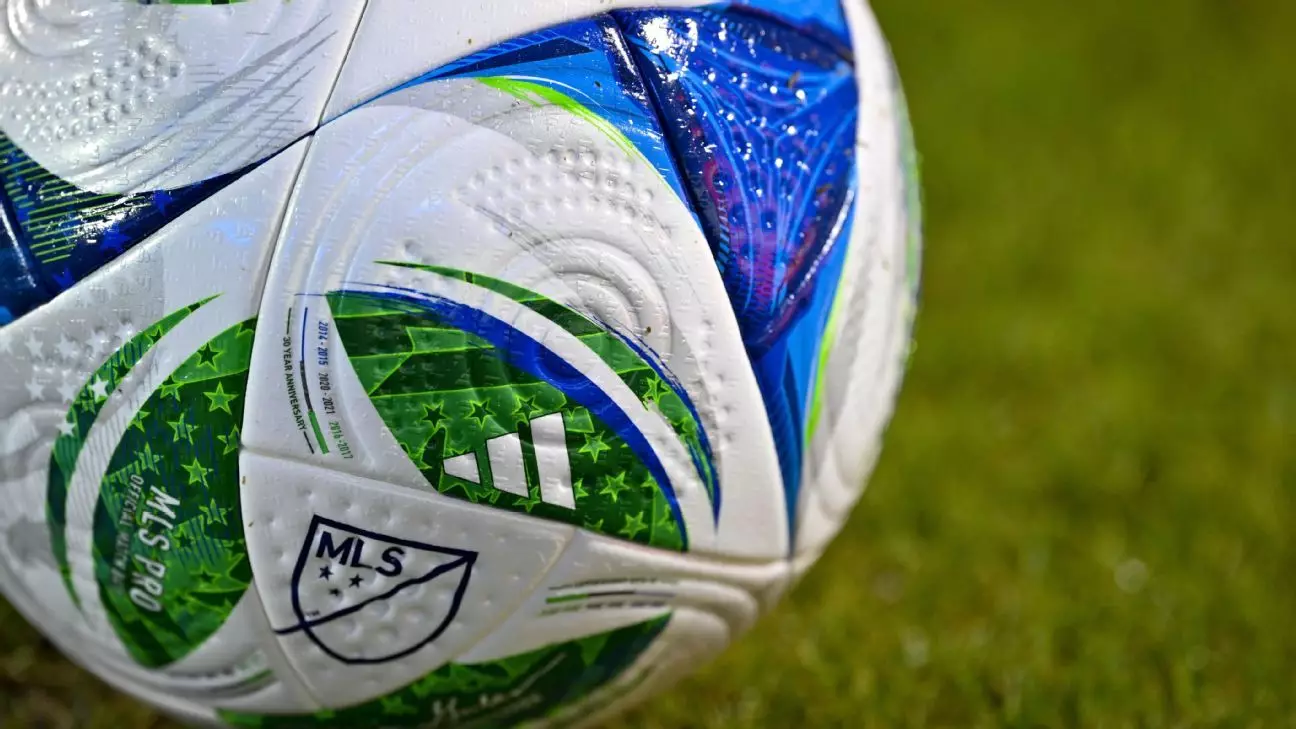In the landscape of professional sports, the relationship between league authorities and players’ unions can often resemble a complicated tango—each side trying to maneuver gracefully while avoiding missteps that could lead to turmoil. The ongoing discussions between Major League Soccer (MLS) and the MLS Players Association (MLSPA) regarding the distribution of prize money from the FIFA Club World Cup spotlight not just the financial stakes involved but also the prevailing ethics governing player compensation. The negotiations have turned contentious, with players voicing their displeasure over what they perceive as an inequitable divide of at least $28 million in FIFA winnings.
The gravity of the situation gained public attention when members of the Seattle Sounders FC took a proactive stance by protesting at Lumen Field. Donning shirts emblazoned with slogans such as “Club World Cash Grab” and “Fair Share Now,” they underscored the mounting frustration voiced not only by their squad but also by broader MLS player ranks. The MLSPA’s initial backing signals a unified front; however, the interaction between players and league executives suggests a disparity in how each party views both the worth of the athletes and the financial benefits derived from their performances.
The MLS Proposal: Discontent and Disappointment
The MLS’s revised offer sought to allocate 20% of performance-related payments to the three teams advancing to the international tournament, while a cap of $1 million was placed on collective participation payments. For players who poured their heart and soul into earning a spot at an elite global arena like the Club World Cup, the offer feels insufficient. With no increase in the percentage cut from FIFA’s vast monetary allocations, players are positioned to receive less than what they might expect based on international standards for compensation. Such paltry offers fuel resentment and further illustrate the rift that exists between the ambitions of the league and the realities faced by the players.
The MLSPA’s revelations paint a stark picture of their current predicament. Claims of “retaliatory” tactics by MLS reflect not only the players’ dissatisfaction but also a growing belief that their worth isn’t recognized. A crucial element of this conversation is the players’ need to demand a share reflective of the revenue generated by their performances. With the league poised to earn millions from FIFA, the disparity in compensation feels less like a negotiation and more like an exercise in futility.
The Stakes of Solidarity in Professional Sports
The backdrop of this dispute extends far beyond money; it delves into the character of professional sports, labor relations, and equity. High-stakes issues like these reveal how vital solidary is among players. They bring to light not just what they are fighting for in monetary terms, but what acknowledgment of effort means in an industry that is fundamentally built upon the athletes’ talents. The players’ voices, amplified by recalls of historical labor movements, resonate powerfully against the backdrop of their current struggle for fair share.
While the CBA protects players from striking over certain issues, the MLSPA is not entirely powerless. They hold the ability to engage in protected actions, a potent tool when combined with public sentiment. The collective voice the players wield is more than just a banner for their demands; it connects directly to the principles of fair labor practices in every sport, allowing athletes an avenue to advocate for proper compensation that reflects the success and revenue they bring to the league.
The Road Ahead: Navigating Tensions
As teams like LAFC, Inter Miami CF, and the Seattle Sounders prepare to partake in the FIFA Club World Cup, the pressing issue of compensation casts a shadow over their efforts. While they focus on their performance on the field, the negotiations off the field loom as a reminder of the unresolved discord. The way forward appears fraught but necessary; a resolution that addresses the players’ legitimate concerns will not only acknowledge their contributions but also set a precedent for future dealings within MLS and beyond.
The question remains: Will MLS respect its players and act to remedy the perceived inequities, or will this dispute serve as a symptom of broader systemic issues in sports labor relations? In an arena where a player’s worth should be non-negotiable, the results of this contentious debate could well define the future of player empowerment in soccer.

